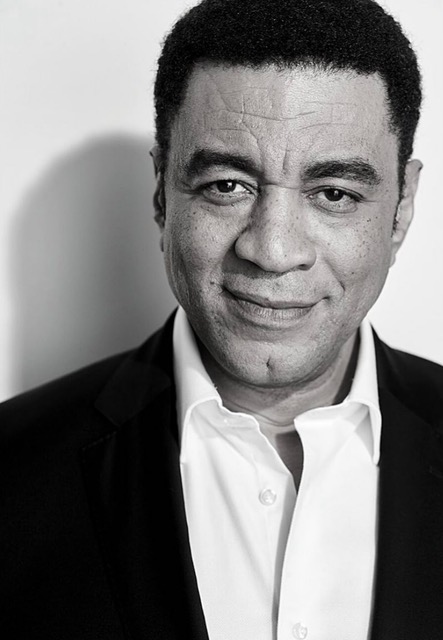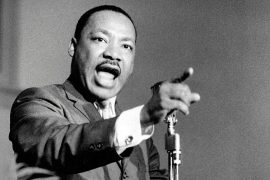Actor Harry Lennix does not need an introduction.
He is a distinguished film, television, stage actor, and producer. He recently starred in the former NBC TV drama, “The Blacklist,” made his screen debut as “Dresser” in Robert Townsend’s “The Five Heartbeats,” had leading roles in the “Matrix” sequels, and took to the Broadway stage in August Wilson’s “Radio Golf.” The list goes on and on.
And now, he’s on stage in August Wilson’s “How I Learned What I Learned” at the Broadway Playhouse at Water Tower Place. Written three years before Wilson’s death, the play recounts several stories and the lessons they taught Wilson about what it means to be a Black artist in America. You don’t want to miss this stunning one-man show, which closes May 5.
The busy actor will resume his starring role in “Purpose,” a story about a prominent family immersed in church and politics, at the Steppenwolf Theater from May 7 to 12. It is directed by Tony winner Phylicia Rashad.
N’DIGO caught up with the native Chicagoan. Here’s what he had to say about his career: the making of the Lillian Marcie Center for the Performing Arts, named after his mother, Lillian, and Marcella Gillie, a Chicago school principal, and a few words of advice for aspiring actors.
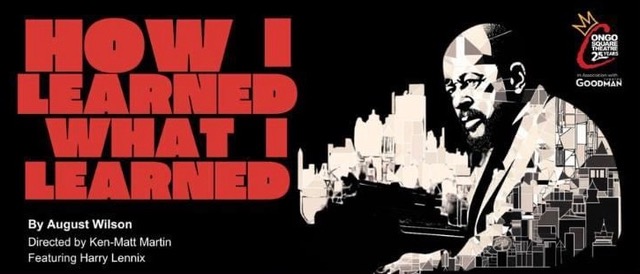
N’DIGO: Welcome home, Harry. Tell us about the play, August Wilson’s “How I Learned What I Learned.”
Harry Lennix: The play itself is Wilson’s reflections. Most of it takes place when he was in his early 20s. Of course, he gives us a full account of what’s happening in America, Black folks’ America experience that starts from slavery and goes all the way up to the modern times. He dwells mostly in Pittsburgh’s Hill District, along with the fixtures who would later become characters in his plays. People such as Hambone, you can see the prototype of him, Elmer, and a number of people. It’s a great opportunity to do many roles. I get to embody all of those characters for a long period of time as I narrate using August’s very unique use of language. It’s several vignettes woven together into an almost dramatic lecture. I think of it like an extended Richard Pryor set where he is not telling jokes, but there’s a lot of humor in it, a lot of drama in it, and a lot of danger in it. So, it’s a really cool journey for an actor.
We are all familiar with Wilson’s classics like “Fences,” “The Piano Lesson,” and Ma Rainey’s Black Bottom.” When did he write this one?
It was first presented in 2003. He did it himself at the Seattle Rep. I don’t think that he ever intended it to be presented by anybody other than himself. I don’t know if he really ever did it twice the same way. But certainly, many have done it, including Ruben Santiago-Hudson.
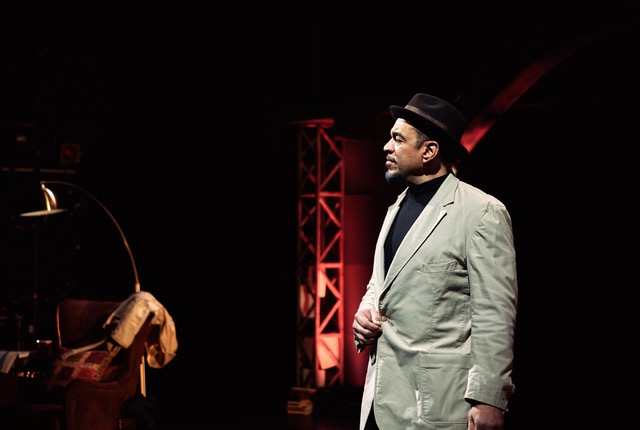
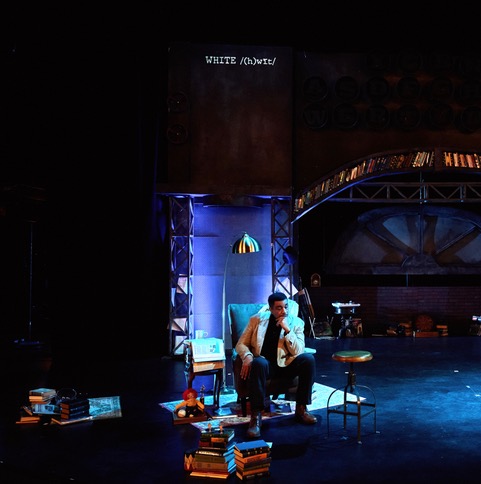
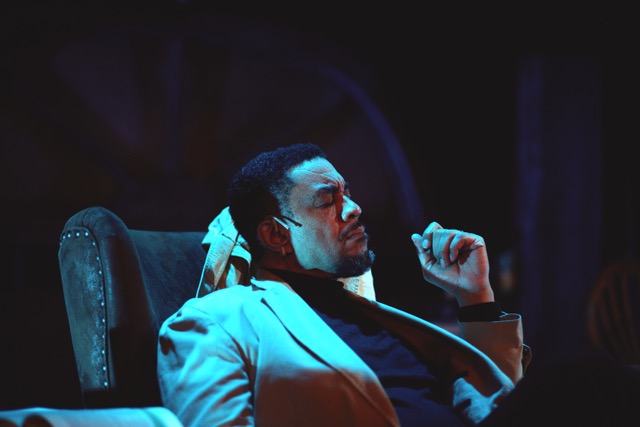
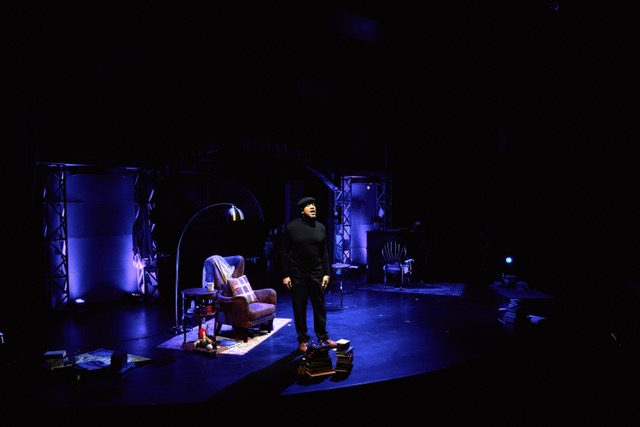
The language is so rich and vibrant. Is there a certain part in the play that reaches you as an actor, as a man?
My favorite section is when he says, “Something is not always better than nothing.” It tells the story of how his mother won a brand-new washing machine, but they didn’t give it to her because they found out she was Black. She had won this radio contest. Then he described how she refused to take the used washing machine that they wanted to give her…I think that was August’s genius, he was able to put in great words, great poetry, the commonality of the Black experience in urban America.
What do you hope audiences will take away from “How I Learned What I Learned?”
Primarily a good time. That’s the first order of business for any kind of entertainment is to entertain. I hope they will get some insights into this great genius. I really think they will enjoy some of these tales.
How did you prepare for this role?
This was really a very interesting process. Having known him, that was really my best research. I decided early on not to try and be August Wilson. Who would I be fooling? I’m trying to be a neutral narrator and use his words to create these characters.

Tell us about the director of the play, Ken Matt-Martin.
He went to Brown University, where he earned his master’s in directing. He knows everybody in the theater. He has an encyclopedia knowledge of theater history, particularly Black theater and musical theater. He is well beyond his years in terms of his knowledge. He’s also a choreographer, and I think that’s what distinguishes this production—he choreographed it. We used the totality of the space; he’s an expert.
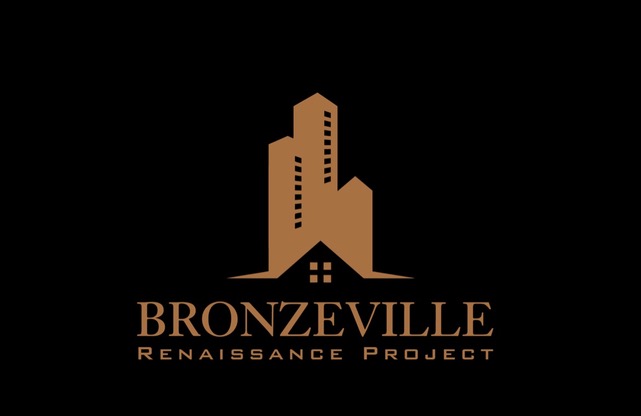
I read that you described Chicago as “the home for Black culture.” Can you elaborate on that?
This was the “Mecca of Black America” for many years. People like Nat King Cole, Dorothy Donegan, Muddy Waters, and Ella Fitzgerald are what we call Black culture. Black performance arts culture was based right here in Chicago. For a long time, we had five or six theater companies based on the South Side of Chicago. We are trying to reinvigorate that with the project I’m working on called the Bronzeville Renaissances Project to give Congo Square and other theater companies that might need a home to call their own.
Tell us about the collaboration between Congo Square Theater and Broadway in Chicago.
This is the first time I think for that kind of collaboration. Broadway in Chicago has provided us the space for us to do this one-man play celebrating August Wilson. And for all 10 of his plays to ever be done in one theater, the Goodman Theater, this is really a dream come true for Broadway in Chicago to be involved in that. I’m happy that these collaborations are happening. What Broadway in Chicago is doing with its collaborations is a recipe for success and mutual benefit. We want to bring that same footprint to the South Side when we open the Lillian Marcie Center for the Performing Arts.

Give us an update on the Lillian Marcie Center for the Performing Arts building. How is that moving along?
We’ve received word from our great Rep. Kam Buckner that the first part of the $26 million grant has been released. Sometimes, you have to work through a process. We hope to get Phase 1 of the Bronzeville Renaissance Project, which is the Lillian Marcie Center for the Performing Arts, completed and open for people to start enjoying it in 2025.
You are also starring in the family drama, “Purpose” at the Steppenwolf Theater. How are you managing that?

The artistic directors were able to work it out. I was able to step away for a minute to do this. “Purpose” is a huge hit in Chicago, so we have extended it so it enables me to do the last week of the extension from May 7th through May 12h. I am excited and honored to be able to do both plays.
Give us a synopsis of “Purpose.” What is it about?
“Purpose” is an exploration of the legacy of an old dynasty family. It is about a fictional man who has one son who wants to follow in the footsteps of the church. The other son wants to follow something that the father was not able to do politically. It’s a family drama, it’s got a lot of comedy in it, a great matriarch, and a great patriarch. I would recommend your readers see it.
Do you have any advice for aspiring actors?
Get into a program. Study the craft of acting, There is a technique to it that gives you a way of working even if you decide to break from that. There are great programs at DePaul, Northwestern, you name it. Diligence, You can’t teach diligence, that ‘stick to it ism.’ You got to have that internally. It was not overnight for me.
What’s next for you?
After these two plays are over, it’s going to be the Bronzeville Renaissance Project. I don’t know what other projects are coming in the near future, but I will be spending more time here in Chicago.
Clarence Waldron is the former senior writer and editor for JET and was named ‘the dean of entertainment journalists” by the NABJ.
“How I Learned What I Learned”
Broadway Playhouse At Water Tower
175 E. Chestnut St.
Closes on May 5
“Purpose”
Steppenwolf Theater
1650 N. Halsted Street
May 7-May 12


